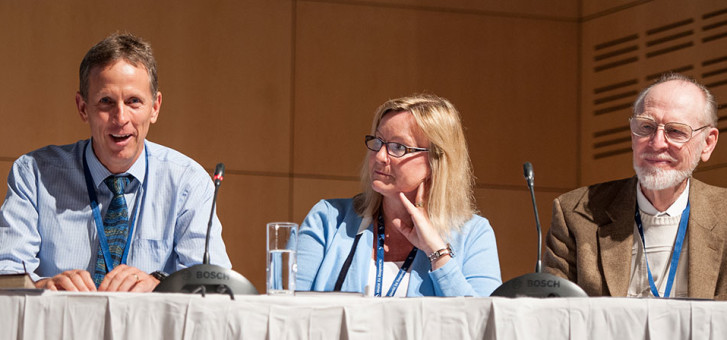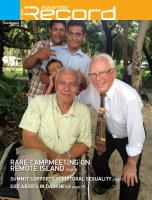Nearly 350 Seventh-day Adventist Church leaders, pastors, academics and human services experts gathered in Cape Town, South Africa, last month for a four-day summit intended to help the worldwide Church better address the experiences of homosexuality and alternative sexualities.
Titled “In God’s Image: Scripture. Sexuality. Society.”, the conference at Africa’s southern tip was, organisers said, intended to be “a conversation with key people in the global leadership of the Seventh-day Adventist Church, to gain a greater understanding of the issues surrounding alternative sexualities and to counsel together regarding the challenges the Church is facing in this area”.
Each of the denomination’s 13 world divisions sent a delegation comprising senior administrators, theological and social science scholars, and “frontline personnel”—pastors, chaplains and human resources directors—to the intensive event that began on March 17. Monday evening’s keynote address by world Church president Ted Wilson was titled “The Truth as It Is in Jesus”.
Pardon Mwansa, general vice president of the General Conference and chair of the committee that organised the summit, said the event was a watershed for Adventist discussion of difficult social and religious issues.
“We are dealing with an issue about which the world around us has already formed a perception,” Pastor Mwansa said. “We can’t avoid dealing with this matter because those perceptions affect how we express ourselves. We are a moral group—a church—and we have to shine and say just what the light is on this issue.“
Summit organisers were clear that they intended no redefinition of the Church’s historic opposition to all sexual expression other than heterosexual marriage between one man and one woman. Listed first among the summit’s “learning objectives” was the goal to “describe the Bible’s teaching on alternative sexualities”. Two of the conference’s first three plenary sessions focused on how to read and understand the Bible’s teachings about human sexuality, as well as specific passages of both Old and New Testaments that address homosexual behaviour.
The summit also covered topics such as the denomination’s legal and employment concerns with legislation around the world, the latest understandings of alternative sexualities from a medical and psychological perspective and how the Church would relate to those who are struggling with issues surrouding human sexuality.
For full reports on the sessions, visit <www.record.net.au>.




